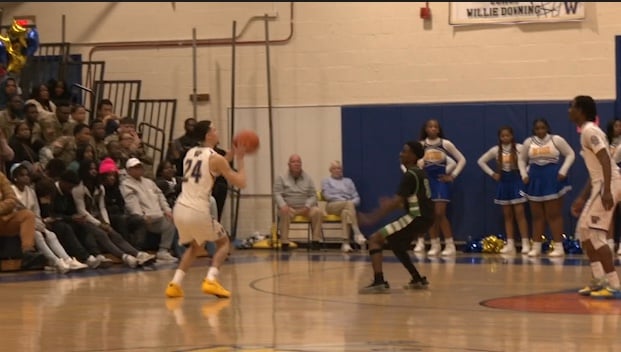SCOTUS begins deliberations on Affirmative Action
DELMARVA – A hot topic for the Supreme Court of the United States (SCOTUS) right now: Should Affirmative Action continue in American colleges and universities?
Affirmative Action Ending?
As the possibility of Affirmative Action ending looms, constitutional scholars tell 47 ABC it wouldn’t just affect predominantly white institutions (PWIs). It could also have ramifications for historically black colleges and universities (HBCUs). They also warn that ending Affirmative Action could have negative impacts on equity in education and hiring practices.
“The most prevalent negative impact would be less diversity, less looking like America as a whole, demographically, over the long term,” said Professor of Political Science at Delaware State University (DSU) and constitutional scholar, Dr. Samuel Hoff. “We’re looking at something that is coming up on 60 years worth of practice, and hopefully something that’s not going to be knocked down after more than half a century.”
“A hurdle”
Affirmative Action is a legal precedent that has stood for the last 57 years. The practice allows colleges and universities to factor applicants’ race into whether or not they will be admitted.
Opponents of the practice argue that while Affirmative Action was originally intended to redress discrimination, it has only promoted it. They also argue that rather than bringing about integration and diversity, racial preferences in admissions processes have divided campuses. Adding, giving extra consideration to non-white students puts white students at a disadvantage.
However, the factor of race is a road block that minority students have historically faced when setting their sights on higher education, says Interim Dean of DSU’s College of Humanities, Education, and Social Sciences, Akwasi Osei.
“Race was used as a blocker, as an impediment, as a hurdle for people to go to school, get jobs, et cetera,” said Osei. “We’re talking about 200-something years of a situation where race has actually been the policy. If you’re Black, you can’t go there. That’s what we’re trying to address.”
Addressing Disparities
Dr. Hoff tells 47 ABC that while he believes SCOTUS Justices will likely end Affirmative Action, other disparities need to be addressed before that can happen.
“When those economic disparities and when those scores are equal, at least until then, I think there is a need for Affirmative Action,” said Dr. Hoff. “It’s supposed to deal with current issues of disparities, and there are still those out there. Until they’re resolved, Affirmative Action is needed.”
And while Affirmative Action is usually associated with admissions at PWIs, HBCUs can use it as a deciding factor in admissions, as well. For example, DSU, Delaware’s only HBCU, considers the practice when admitting non-Black students.
“I believe that Delaware State will continue its open-minded approach for whoever we believe is qualified, not only to be a student here, but also to teach here,” said Osei. “It’s not incidental, or coincidental, that we probably have as many Black people teaching here as we have folks that are other ethnicities.”


